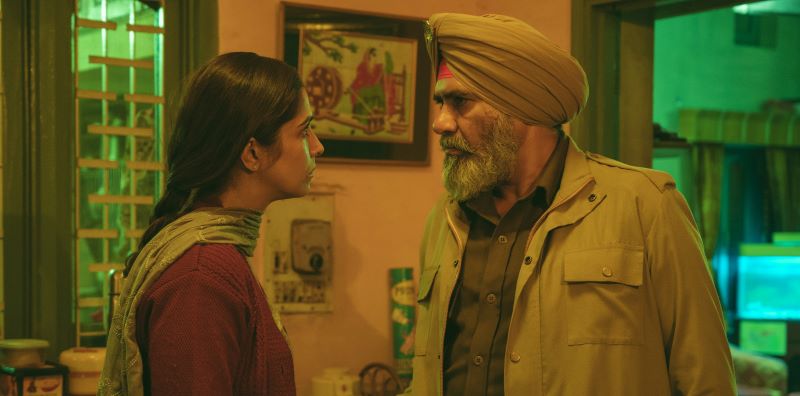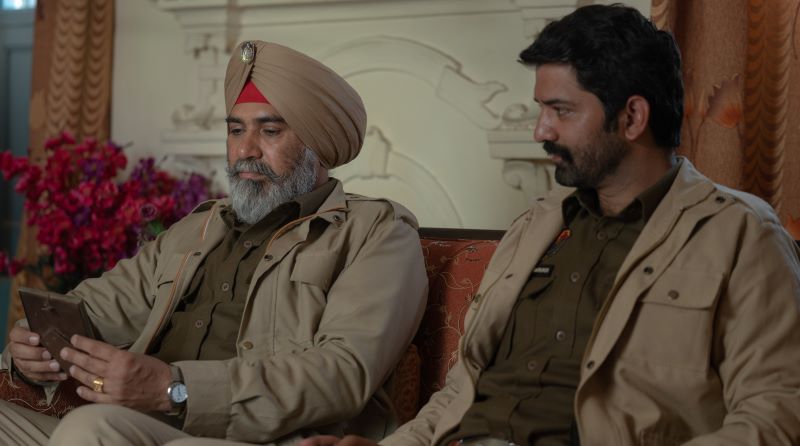
Kohrra review: A gritty tale of murder, privilege, and migration set in Punjab’s hinterlands

Kohrra is no sanitized murder mystery — one where a dead body dutifully appears, spends time in the forensic lab during postmortem and then dutifully disappears to not spoil the aesthetic of the show. In Kohrra, we see blood and gore. We even hear the screams of the dead’s family — their cries are loud enough to make us uncomfortable. Murder is not just a plot device in the show but a sinister presence—a dense fog which consumes and devours those around it.
Created by Sudip Sharma who has worked both as a screenwriter and producer in projects like Paatal Lok (2020), Udta Punjab (2016) and NH10 (2015), Kohrra shows the corrosive nature of toxic masculinity and police brutality in all its monstrosity. While the former has been dealt with quite effectively in films and streaming shows, the latter is rarely addressed.
In a scene from the second episode, an angry Steve Dhillon (Manish Chaudhary) assaults his son, Paul (Vishal Handa) when he discovers that he has chopped off his hair. “Janani hai tu (you are a woman),” Steve says to his son, taking a dig at Paul’s gender identity. Steve then takes a chunni (dupatta) and ties it on Paul’s head.
Commentary on police brutality, privilege
Years later, Paul is found dead in a farm. Sub-inspector Balbir Singh (played by Suvinder Vicky) and junior cop Garundi (Barun Sobti) investigate Paul’s murder, uncovering a web of lies, deceit, and dysfunctional families who should be under therapy. Sobti plays a socially awkward, reserved and seemingly harmless cop, Garundi. But below this social awkwardness lies repressed anger which finds its outlet in the prison cell. Garundi takes out his anger on detainees as he beats them black and blue, completely ignoring the due process of law in the event of an arrest.
When he is not beating up detainees, Garundi casually roughs up people because, well, he is a cop. In one scene, he walks into a mehendi function and roughs up the henna artist to get information on a suspect. When a woman protests against the blatant misuse of power and authority, Garundi brazenly ruins the henna design on her hand.
Also read: Adhura review: A feeble horror-thriller, set in Ooty, fails to send chills down the spine
In another scene, Garundi visits a bar and roughs up the manager, threatening him with jail time unless he gives him the CCTV footage. Before leaving, he takes an alcohol bottle from the bar without paying for it. The open licence given to policemen in India to hit, abuse, and intrude on the privacy of civilians is portrayed in Kohrra to a stirring effect.

However, the policemen cannot always get away with bending the laws in their favour. In the fifth episode, Balbir interrogates Happy, son of a rich factory owner. In no time, Happy’s father barges into the police station with a barrage of lawyers. That is when Balbir realises that he needs a warrant to interrogate suspects and also provide them with a lawyer.
The police can get away with violation of civil rights only as long as they are not violating the rights of the privileged. Besides police brutality, Kohrra also comments on privilege. Would Kullie be hounded up and forced into a jail cell if he was as privileged as Happy? Had Paul not been a UK citizen, would his murder be investigated on priority?
The safety valve of humour
In the final episode, after wrongfully imprisoning Saakar, Veera’s fiancee, Garundi prances into the jail cell and tells him that he is free to leave. Saakar bursts into tears—he spent days in jail for a crime he never committed. “Sorry, yaar (I’m sorry, buddy),” says an insensitive Garundi. The pathos in the scene is palpable.
A system that allows the privileged to get away with murder as the poor spend days in jail for no fault of theirs needs some cleaning. Kohrra shows a mirror to not just the policemen, but also to the civilians who have, for too long, allowed the police to get away with abusing their power by not holding them accountable.
Despite the murkiness that surrounds the Kohrra’s plot, the show has light-hearted moments. Humour cuts through the tension in some scenes like knife through hot butter. In the first episode, when cops visit Veera (Paul’s fiancee) to inform her of his death, Veera’s mother bursts into tears and tells the police, “She has gone to the parlour for her 16 sessions of her bridal package”.
In scenes brimming with suspense, unintentional humour acts like a safety valve, helping the viewers breathe, blow off some steam and find their ground. In a show as grim as this, striking a balance between the sudden tonal shifts can be tough, but the watertight screenplay by Sudip Sharma does so with finesse.
Intergenerational trauma, migration woes
Besides this, Kohrra also offers commentary on dysfunctional families and intergenerational trauma. Nimrat (Harleen Sethi) grew up in a household where her parents were always arguing. She is now separated from her husband and is dating a younger man, much to her father’s dismay. The generational cycle of abuse continues in the Singh family.
Also read: Mission: Impossible – Dead Reckoning, Part 1 review: Tom Cruise revs up adrenaline overload
One day, Golu (Nimrat’s son) disappears from school. It is revealed that Golu wasn’t keeping too well and had emotional breakdowns in his classroom. The show doesn’t directly address Nimrat’s poor parenting skills, but Golu’s declining mental health is proof that Nimrat is repeating her father’s mistake. The generational cycle of abuse continues in the Singh family and has consumed the third generation too.
There are many references to Punjabis’ obsession with migration to Canada and the UK. In one scene, Satish Ahuja, a drug peddler, tells the cops that he used up all his drug money to pay for his daughter’s admission in Winnipeg University. In another scene, we see Nimrat video call her childhood friend in the UK, who now has a rich husband and lives an envious life. The Punjabi elite’s obsession with Canada migration is perhaps rooted in their desire to transcend the social hierarchies and climb up the ladder. However, much is lost at home in search of a better life abroad.
Set in the Punjabi pastoral where a dense haze envelops farmland, Netflix’s Kohhra has a clear vision of what it’s set out to accomplish. It serves as the perfect antidote to overly opulent and vibrant narratives from Punjab that have oversaturated the film and OTT space lately. Its commentary on homophobia, patriarchy, police brutality, and toxic masculinity is effective and doesn’t come across as heavy-handed, a rare feat for murder mysteries.
Kohrra is streaming on Netflix.


